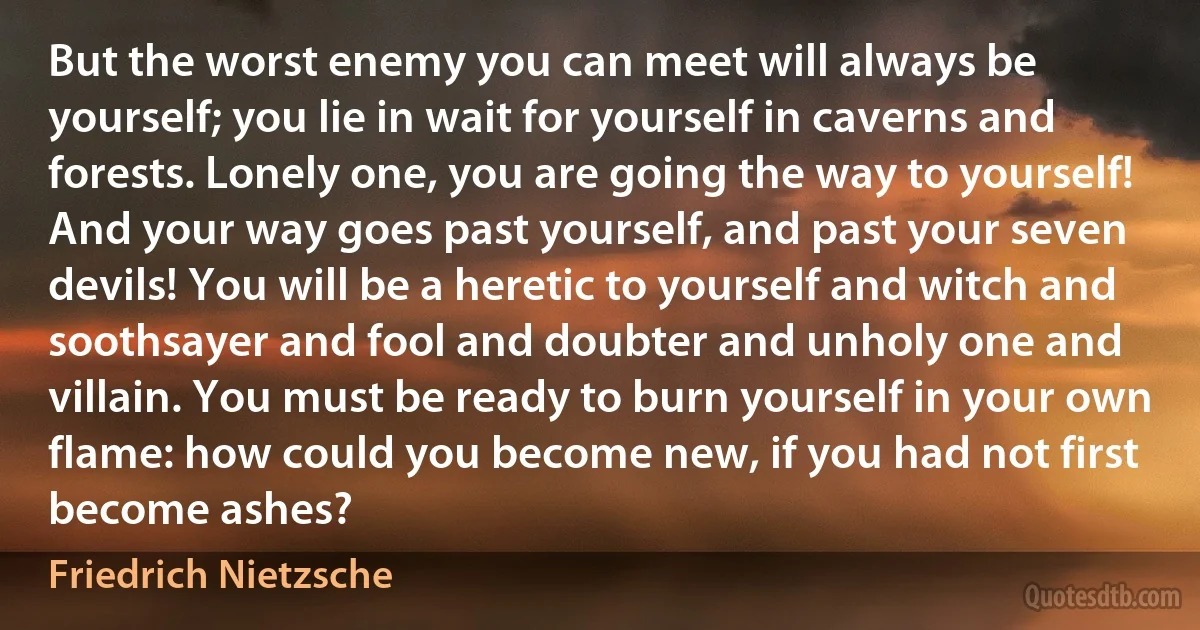Heretic Quotes - page 3
For a disciple of Jesus, in each case the decision hinges upon the answer to the question, Is it Christian? Is it a thing that Jesus could do without sin? Is it in harmony with his teaching and desires? Can it be followed without violating his way of life? Is it such that he can use it, sanction it and bless it? If the devout monk had decided the question solely upon these grounds, he should not have used torture to conquer the heretic, the judge should not have used the stake to silence witches, the politician should not adopt the evil practices of his opponent, and if the Christian citizen uses this same test, he should not, in my opinion, use the sword in resisting the military despot.

Kirby Page
Taslima Nasreen is known as a heretic in orthodox Islamic circles. She has been a vocal advocate of human rights, especially the rights of the women in Islam. However, she has paid dearly for speaking out the truth. There are still many fatwas against her calling for her killing. She is living a life of self-exile outside her native country of Bangladesh since 1994.

Taslima Nasrin
According to the seventeenth-century way of thinking, an atheist was by definition a decadent. If there was no God (or, at least, no providential, rewarding-and-punishing God of the sort worshipped in all the traditional religions), the reasoning went, then everything is permitted. So a non-beliver would be expected to indulge in all manner of sensual stimulation... to lie, cheat, and steal...
Spinoza, according to all seventeenth-century interpreters, rejected all the traditional ideas about God; he was indesputably a heretic. Yet his manner of living was humble and apparently free of vice. Then, as now, the philosopher seemed a living oxymoron: he was an ascetic sensualist, a spiritual materialist, a sociable hermit, a secular saint. How could his life have been so good, the critics asked, when his philosophy was so bad?

Baruch Spinoza
Arnole had time for analysis.
"It is interesting,” he said to himself, "that this small god implied devils were made of ignorance, for I have always believed this to be true. Ignorance perpetuates itself just as knowledge does. Men write false documents, they preach false doctrine, and those beliefs survive to inspire wickedness in later generations. They are like the spells woven by wizards, lying in wait for the credulous to find them and uses them. Conversely, some men write and teach the truth, only to be declared heretic by the wicked. In such cases, evil has the advantage, for it will do anything to suppress truth, but the good man limits what he will do to suppress falsehood.
"One might almost make a rule of it: "Whoever declares another heretic is himself a devil. Whoever places a relic or artifact above justice, kindness, mercy, or truth is himself a devil and the thing elevated is a work of evil magic.”.

Sheri S. Tepper

